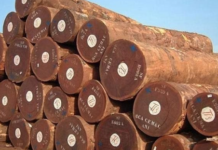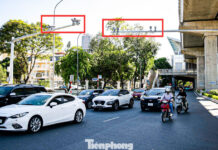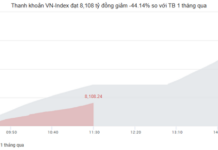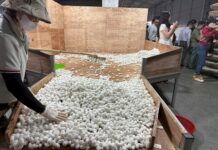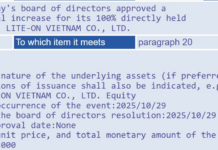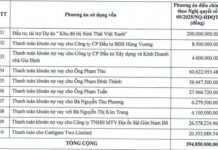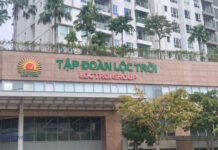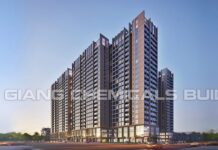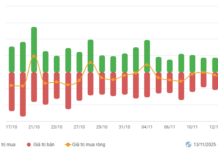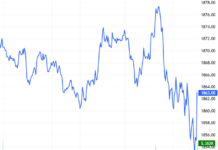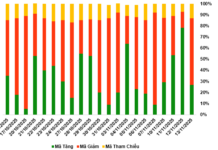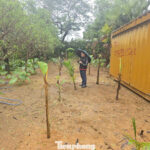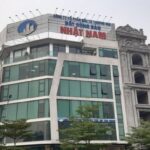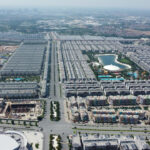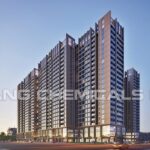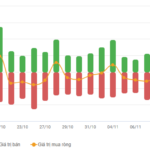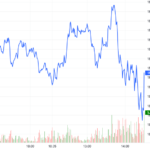A Non-Chemical Project with a Significant Scale
On November 12, 2025, the Hanoi People’s Committee issued Decision No. 5568/QĐ-UBND, approving the investment policy and designating the investor for the Đức Giang Public Works, School, and Housing Complex.
This is one of the rare large-scale projects in the Đức Giang – Việt Hưng area, proposed by Đức Giang Chemical Group (HoSE: DGC) and directly implemented by its subsidiary, Đức Giang Real Estate LLC.
Previously, in October 2025, the Hanoi People’s Committee issued Decision No. 4590/QĐ-UBND, approving the detailed 1/500 scale planning for the Đức Giang Public Works, School, and Housing Complex at 18/44 Đức Giang Street, Thượng Thanh Ward, Long Biên District.
The complex spans over 47,470 m² at 18, Alley 44, Đức Giang Street (Việt Hưng Ward, Hanoi), featuring 60 townhouses, an 880-unit high-rise apartment building, a 1.1-hectare school, and a system of services, commerce, and sports facilities.
The total investment is estimated at VND 4,500 billion, entirely funded by Đức Giang’s own capital. The project is scheduled to run from 2025 to 2030.
Earlier, in May 2025, Đức Giang increased the charter capital of its subsidiary, Đức Giang Real Estate, from VND 500 billion to VND 1,000 billion. With tens of trillions of dong in bank deposits, DGC is deemed financially capable of self-financing, avoiding loan risks, and maintaining a stable positive cash flow throughout the investment cycle.
According to Vietcap’s estimates, the project could generate VND 413 billion in after-tax profit in 2027 and approximately VND 1,000 billion in 2028, upon completion. With an average selling price of VND 70 million/m² for apartments and VND 250 million/m² for townhouses, revenue could reach trillions of dong. Although a one-time profit, the project enhances DGC’s utilization of idle capital during the ongoing investment in industrial projects like the Nghi Sơn Chemical Zone and the caustic soda-chlorine chain.
“Venturing into Real Estate Due to Available Land”
At the 2025 Annual General Meeting, Chairman Đào Hữu Huyền emphasized that the Đức Giang project is not a strategic shift to real estate but merely “utilizing existing land resources.”
He stated, “We have waited for five years. The 1/500 planning was approved long ago, but the real estate market faced numerous challenges in the past period. This project, with expected selling prices of VND 40 million/m² for apartments and VND 100 million/m² for townhouses, could generate around VND 5,000 billion in revenue and approximately VND 1,000 billion in profit.”
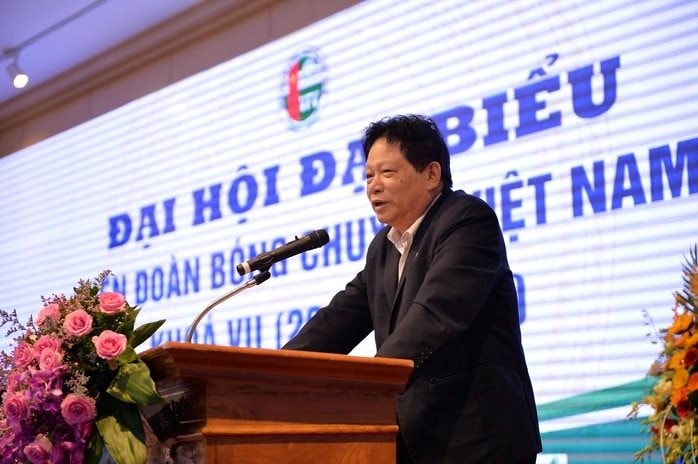
Chairman Đào Hữu Huyền emphasized that the real estate project is not a strategic shift but merely “utilizing existing land resources.”
Mr. Huyền candidly remarked, “If everyone rushes into real estate, I don’t know where the country will end up. We are doing this because we have the land, not because we intend to dive into this sector. The company remains focused on production.”
According to Rồng Việt Securities (VDSC), the real estate segment accounts for a very small proportion of DGC’s profit structure. The group is still recognized as Vietnam’s leading chemical enterprise, owning a closed production chain from yellow phosphorus (P4), phosphoric acid (TPA), DAP and MAP fertilizers, to feed additives.
Simultaneously, DGC is accelerating the Đức Giang – Nghi Sơn Chemical Industrial Park (Thanh Hóa), expected to commence operations in 2026. This project is anticipated to expand DGC’s basic chemical production capacity, diversify products, and enhance long-term profit margins, solidifying its leading position in Vietnam’s chemical industry.
Encroachment on Hanoi Lakes: Local Wards and Communes Fail to Implement Violation Handling Directives
Despite the Hanoi People’s Committee’s mandate to resolve all 220 outstanding violations related to irrigation canals and lakes by October 30, 2025, no commune has yet reported back to the Hanoi Department of Agriculture and Environment. Meanwhile, new violations continue to emerge.
Hanoi Apartments Overtake Land Plots as Leaders in the Secondary Market
In Q3/2025, land plot sales declined across all regions, primarily due to high average prices driving capital toward more liquid asset classes. Meanwhile, secondary apartment transactions continued to surge, reaching a two-year high in sales volume, with activity concentrated in yet-to-be-handed-over sub-districts.



